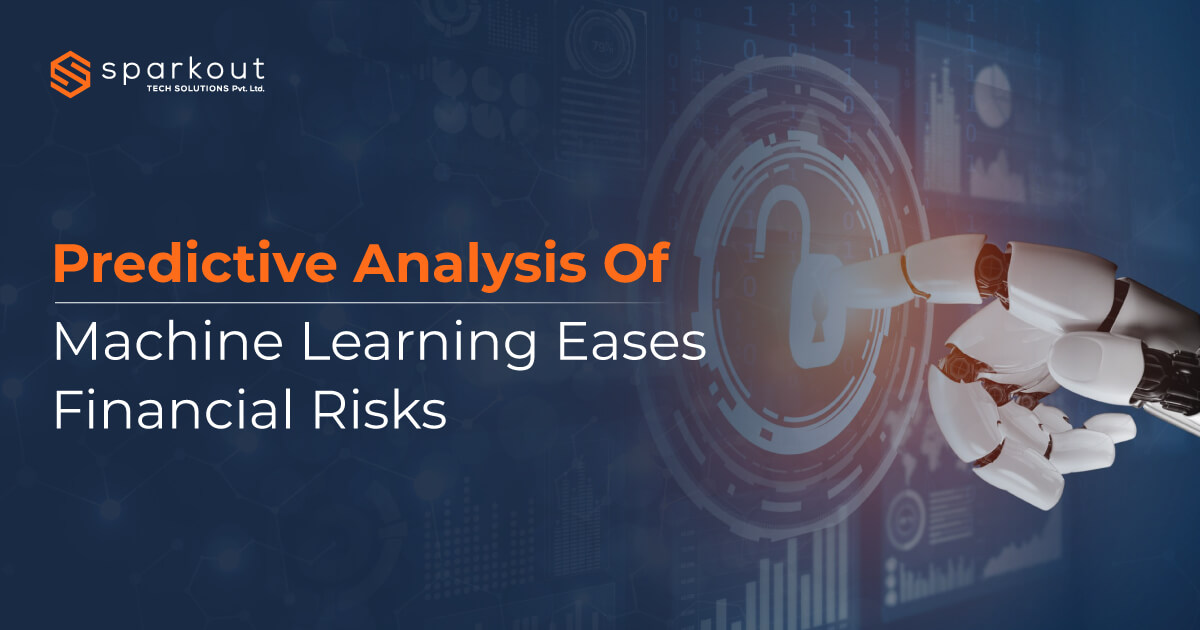“63% of executives reported organizations have experienced a significant risk event in the past years” - from the survey conducted by PwC in 2020. These events included cyber-attacks, regulatory non-compliance, supply chain disruptions, and reputational damage. Adding to this the Journal of Risk and Uncertainty found that 80% of a company's risks are typically due to 20% of external factors - highlighting the need for active and effective asset risk management. In this Digitally empowered society, asset management is still risk prone. The interventions of AI in predictive analytics with machine learning have proven to result in asserting secured action to pursue based on future market positions.
Let us here dive deep into how these modern tech-prone innovation algorithms help enhance business and financial asset management.
Machine Learning For Asset Management
Machine language has been a revolutionizing concept for almost every sector. Why would it outcast Asset management in the scene? The highlighting ability of Machine learning techniques is the capability to understand huge data, and concrete patterns, provide informed investment decisions, and a lot more. Accuracy and efficiency are paramount to Asset management while Machine learning techniques help in compounding the solution addressing it. They have the third eye to provide transparency on future transformations based on performances and market movements. It plays a vital role in identifying investment opportunities and mitigating risk effectively.
Furthermore, machine learning algorithms continuously learn and adapt with new data inputs, and enable them to refine their models over time. The iterative Machine learning for asset management process gives a heads-up by analyzing market trends and adjusting investment strategies. Despite handling stock data, prices, market trends, and investment strategies. Machine learning contributes to financial data analysis, providing quick results and optimum real-time insights into the business.
Bringing Machine learning into the crucial decision-making process empowers asset management, enhances the profile with valuable inputs, and contributes to enhancing the overall performance. And combining the analytical capabilities of machine learning with that of human judgment and experience, it's a great way to pull off risk adjustment.

ML Helping Out Investment Managements On Quantitative Notions
Identify what’s not working and suggest new patterns
They can work effectively with big data and analyze everything possible in multi-functional dimensions. This gives more insight into the working strategies and highlights the right techniques and approaches while also adding on why a strategy is not the best fit here. Over the analyses, ML has the potential to provide more modern and real-time solutions that would work for the system. And over the years machine learning for asset management has provided 10% more accuracy than o the prior models.
Suggest new data analytical pattern
Previously it was images and sounds that only humans can understand, while the data formats have evolved to fit in the computer languages, for investment manager inputs, the Machine learning algorithm is trained to identify the elements much more accurately than human capability. Moreover, the market is also switching towards alternative datasets, ML makes everything possible with a simple click, from foot traffic to website traffic every detail is collected, recorded, and reflected. This also showcased the feature of detecting useful trends to predict company performance.
Reducing negative human effects on investment decisions
Over the years there are a lot of theories and practices evolving around the concepts of behavioral economists and cognitive psychologists that reflect on irrational decisions taking. Implementing ML to trace traditional trading records and ascertain the portfolio of the prospectus, makes it easy for the analyst team to derive better solutions. ML techniques are employed in multiple levels of the investment process, from security selection, and portfolio construction to executing trade practices.
Transformation Of Predictive Analytics In Business
Predictive analytics is emerging as a powerful tool in this data-driven world enabling organizations to make well-informed decisions and meet the competitive edge of the market. Analyzing historical data, advanced algorithms, and working patterns, predictive analytics with machine learning forecast future trends and outcomes with a high degree of accuracy.
The application of predictive analytics is vast, in this business world and helps companies in terms of their marketing campaigning, by identifying effective tools and target audiences. They shall also assist inventory management by predicting demand patterns and ensuring optimal stock levels.
Eventually, they also contribute to Healthcare sectors in terms of disease detection, providing precise timely interventions and patient outcomes. They also contribute to providing facilities to identify patients at risk of readmission or complications, enabling proactive care management.
Also, predictive analytics plays a vital role in terms of finance and risk management factors. By providing traditional analytical data, history lineups, economic indications, market trends, identifying investment opportunities, and more they make a pretty good contribution to the space. Moreover, predictive analysis enables the power to transform raw data into actionable insights for an organization to strive through and head up over its competitors.

Contribution Of Machine Learning To Financial Risk Management
The contribution of artificial intelligence and machine learning to financial risk management is an attractive portion of business analytics. With huge inputs on the functioning of business operations are revolutionizing the sector and scaling investment opportunities by leveraging on the data, automating decisions, and more. Few more key aspects of Finance Risk management with ML and AI.
- Data Analysis and Predictions
The AI and ML algorithm is capable of analyzing huge financial data, tracking price trends from past to future, and highlighting market news, socio-economic indications, and company reports all through one. To provide accurate prediction performances of the asset, ML pimples advanced statistical techniques. - Risk Assessment and Risk Management
Through advanced ML techniques, it's convenient to manage and assess risk-associated financial asset data. Modern machine learning models analyze the patterns of the market data and identify risk factors; it enables visibility for developing risk models to estimate the likelihood of certain events. It's used in optimizing portfolio allocations and implementing risk mitigation strategies. - Optimized Portfolio
Machine Learning for Financial Risk Management constructs and optimizes investment portfolios. The algorithms are constructed based on multiple factors such as risk tolerance, market conditions, and investment goals to recommend an optimal allocation of assets. By adopting periodical checklists the system shall automatically adjust towards the dynamics of the market and eventually optimize returns. - Automate Trading
Through artificial intelligence and machine learning it provides automated trading strategies to apply into action. The ML algorithm analyzes the data in real time and identifies the best trading possibilities and executes trade practices without intention. By leveraging system algorithms they reinforce learning to extract past trade records and experiences and improve performance over time. - Detects Fraud
Implying AI and ML techniques into Financial asset management, they analyze the data, its behavioral patterns, network relationships, and more, to detect fraudulently happening and restrict them in the future. The algorithm can be designed to notify any sort of suspicious activities happening in the system. - Analysis Customer Sentiments
Through various sources like social media, news articles, online forums, and various other spaces, machine learning uses algorithms to identify user sentiments. This helps in planning financial institutional planning in a manner that doesn't affect the flow of profit and makes well-informed decisions based on the market sentiments. - Compliance and Regulatory Adherence
By automating compliance checks, and detecting anomalies and suspicious activities in real-time through ML algorithms they added more value in planning the operations and financial structures of the business effectively.

Machine Learning In Risk Management Is An Effective Add-on
Machine Learning with its indispensable abilities, emerges as a powerful tool in the world of asset management. AI and ML are significant enough in making financial decisions for the system. They are not the substitute but perform way superior to them based on the inputs given. And its highlight is accuracy and speed. Machine learning in Risk management oversight and intervention on crucial data to validate and interpret on retrieving better outcomes. They also ensure to derive ethical solutions and meet the market values. They add more value in deriving better decisions and with advancements they tend to keep expanding their capabilities over time.
With innovative demand and needs arising in the market, businesses need to get themself updated for their survival. We at Sparkout Tech Solutions help businesses, startups, and individuals to improve their quality and preference for the world with innovative solutions backed by advanced technologies. Our expert can help you out with setting up Machine Learning in your financial asset management system and contribute to deriving scalable outcomes.
 Translate
Translate


















Author Bio
Yokesh Sankar
CO-Founder
Yokesh Sankar is the co-founder and chief operating officer of Sparkout Tech. He believes in changing people's lives for the better and developing the skills they need for success, and that the software industry has endless possibilities to streamline virtually any industry you can imagine. In addition, he is also an advocate for the adoption of blockchain technology, helping businesses of all sizes to realize their visions through this revolutionary technology. He will be sharing everything he has learned over the years working in the industry, and he hopes to open out as much knowledge about the software industry as he can.